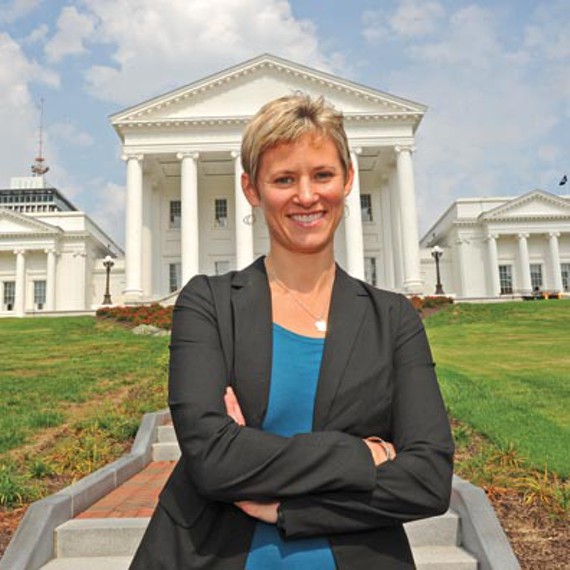
(10-4-15) Mira Signer, the executive director of the National Alliance on Mental Illness in Virginia, reminds us in this Op Ed printed this weekend in The Washington Post that we know how to help persons with mental illnesses who are locked in Virginia’s jails and prisons — we simply aren’t doing it.
This is true in other states as well. The problem is not a lack of knowledge but of political clout. I believe we will only gain that power when we create a strong mental health coalition and a PAC that will contribute to campaigns of candidates who support mental health reform. Thanks Mira for speaking out so eloquently.
Closing the gaps in mental health care in Virginia
Two recent incidents, each horrifying, should give Virginians pause about how much progress has been made in recent years regarding our mental-health system.
● Twenty-four-year-old Jamycheal Mitchell, who had a history of mental illness, died in a Virginia jail while waiting three months for a hospital bed to open up.
● Natasha McKenna, a 37-year-old mother from Alexandria with a history of mental illness, died in a Fairfax County jail after being shocked multiple times with a Taser. Her death was ruled accidental.
So many questions. So much heartbreak. So much outrage.
Last year, Virginia’s local and regional jail systems reported 6,787 incarcerated people with mental illness — 1 in 4 of Virginia’s inmates — making jails among the commonwealth’s largest providers of mental-health services.
Virginia has fewer than 1,500 state psychiatric beds. That sounds like a lot of hospital beds, so what’s the problem?
At any time, hundreds of discharge-ready patients are occupying those beds because of a lack of community services, such as medication treatment, therapy groups, case managers and housing.
Given the circumstances, it’s not unreasonable to expect that jail staff be trained in handling inmates with mental illness. But we need to ask why there are nearly 7,000 inmates with mental illness in jail. For what other health-care concern do people wind up in jail instead of in a doctor’s office?
The problem goes back decades. Starting in the 1970s, inpatient psychiatric hospitals were downsized under a laudable philosophy that abandoned the outdated mode of institutionalizing people in favor of more humane and compassionate community-based care. Treatments were becoming more sophisticated, and newer medications did not have the horrible side effects of their earlier forms. Money was supposed to follow the patients into the community after the massive downsizing of state hospitals, but that promise was not kept. Instead, downsizing was seen as a way to shift costs to state and local governments and ultimately skimp on mental-health care. We are still seeing the fallout from this faulty approach, and jails are picking up the slack.
And those with mental illness — such as Mitchell and McKenna — fall through the deep cracks.
Virginia lawmakers should call for investigations into the deaths of Mitchell and McKenna, for accountability and for learning.
The General Assembly should inject a massive amount of funding into permanent supportive housing , which helps end the costly cycle of homelessness, incarceration and hospitalization. Permanent supportive housing also is significantly less expensive than incarceration and hospitalization, multiple studies have shown. In the past, it has reduced emergency room costs by 62 percent.
Virginia also should expand the use of jail diversion strategies, including implementing mental-health courts in all districts and ensuring that at least 25 percent of police personnel are trained in de-escalating mental-health crises.
And Virginia’s lawmakers should quit bickering and expand Medicaid, which would include more than 34,000 adults with mental illness not now covered, enabling them to get regular mental-health care and medications, stay healthy and avoid crisis. That would save taxpayers money.
The public must hold leaders accountable for the problems and pitfalls of our mental-health system. Lawmakers juggle many competing priorities, and the squeaky wheel often gets the grease. While the families of Mitchell and McKenna try to pick up the pieces and go on with their lives, the rest of us need to provide a voice for the voiceless and ensure that there are never again needless deaths like theirs.



